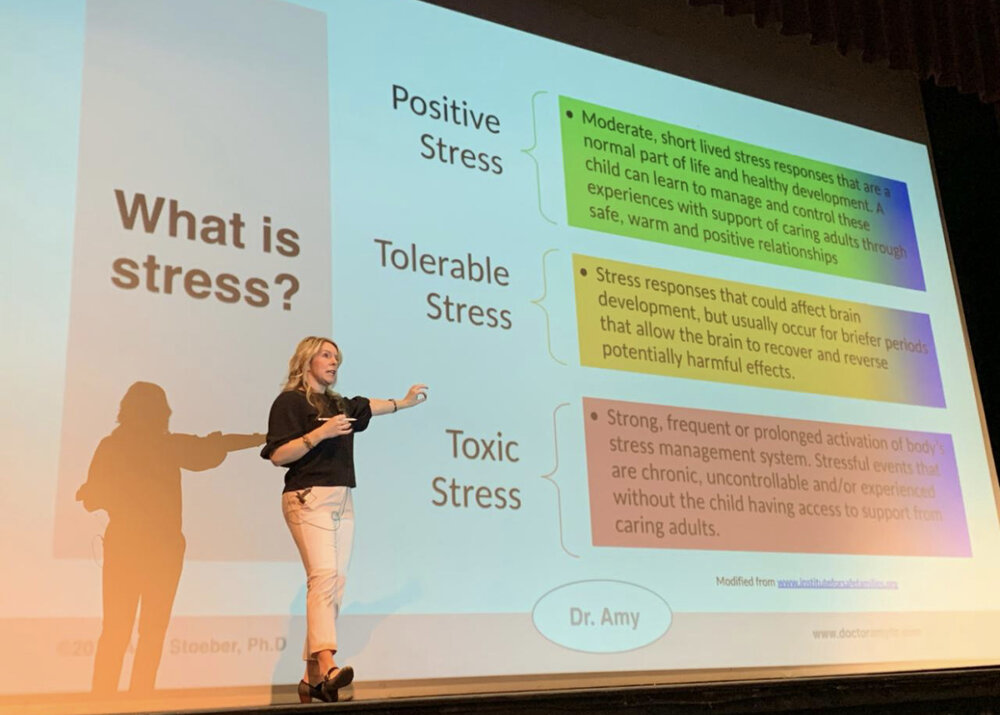
Hello friends – A few fun events have been happening in Dr. Amy’s world, despite quarantine life. I hope the same is true for you. Let’s get caught up!
Catch up on blog posts
Are the days feeling fast and slow all at once? Underwhelming and overwhelming all at once? Hopefully, you read the last message around acknowledgment – if you haven’t, you can grab it here. Acknowledging where we stand and how we feel is an important step for healing and growth. Here’s what one reader recently told me:
Thank you for talking about acknowledging the pain. That’s where I have been this whole time. Anything else feels invalidating to my experience. This sucks…I don’t find comfort in positive spins on this. I feel like I need validation before I can being to move through this.
I hope you read these posts and let me know what else I can cover for you in my twice-monthly blog. You can reply now and send me thoughts and ideas any time.
AND, special bonus – if you’re a teacher, I’m adding a special edition newsletter on alternating weeks to help inspire you, partner with you, and get to the end of the school year whole. Here it is!
Listen to Dr. Amy on a Podcast
If you’re following me on social media, you may have seen that I was recently featured on a podcast with Dr. Whitney Casares @modernmommydoc. I was talking with her about how to embrace “good enough” parenting, especially right now during a time of overwhelm. If you’re like me, you’re still in the midst of working from home, homeschooling your children, figuring out quarantine rules and phase one rules and all of the things! This episode speaks directly to those of us who would like to embrace imperfect parenting and, instead, show up perfectly imperfect for our children. I hope you check it out!
Collaborate with Dr. Amy
OK, you’ve made it this far in quarantine-lock-down-what-the-heck-more-could-my-kids-want-do-they-need-another-snack-can-we-drink-yet-what-day-is-it kind of days. Whew! Great job! And, I want to continue to partner with you and support all of you.
Come June, I think we’re going to need a mindset shift – moving from parent as teacher to simply being a parent again. While I know you constantly wear many hats, doing “crisis homeschooling” with your child the past few months has, I’m sure, taken its toll on your relationship with your child.
If you’re like me, you’ve had some tears and many feelings of overwhelm. So, I thought we could come together to refocus on our most important job – being a perfectly imperfect parent.
I’m looking for a small group of parents to create a course all about positive discipline and connection. If you’ve heard me speak before or read my previous blog posts, then you know I’m a big believer in authoritative parenting, or what I call, becoming a Loving Hard Ass. It’s a delicate balance between being kind and firm, unconditional and clear, loving and having high expectations.
If you’d like to join me in creating a transformational course for parents, sign up to be a part of this focus group! I can’t wait to hear your thoughts, ideas, and the best ways to meet your needs as parents.
Space is limited!
Sign up here!
Your Investment (my ask of you):
-
Meet with Dr. Amy and other parents for 1 hour via Zoom
-
Provide feedback and input on content, timing, and outline for the course
-
Complete a 5-10 minute survey
Here’s the pay-off (what’s in it for you):
-
You get to be a part of creating a custom course for YOUR needs
-
You’ll be the first to sign up for the course before anyone else has access
-
You’ll receive 30% off the course
In other words, this is a course that I want you to find both meaning and ownership in – I want to be your teacher and coach; but I also want you to feel invested in how you engage with the content. This is truly the only way change occurs!
That’s all friends – catch up, listen, and collaborate – those are your three action items.
-
Read up on my previous blog posts about acknowledgment
-
Listen to my podcast episode with Dr. Whitney Casares @modernmommydoc
-
Remember to sign up if you want to be part of my focus group about Transforming your Approach to Parenting
Let me know which one you’ve chosen (hopefully all!) and know that I hope to see you in a focus group.
With compassion,
Dr. Amy

